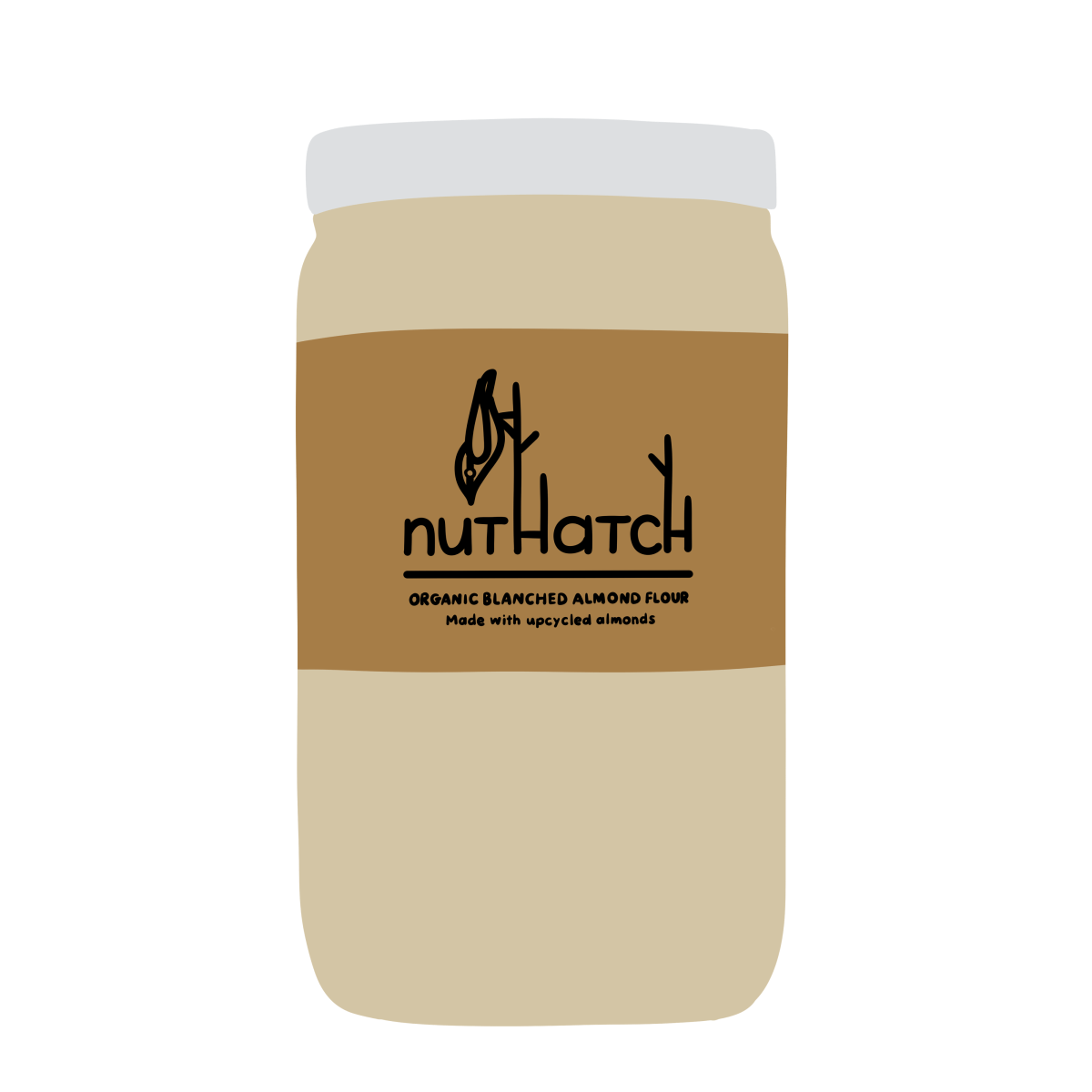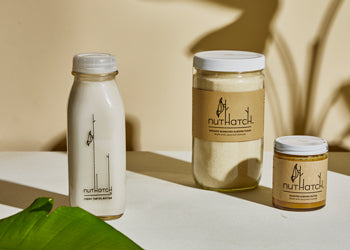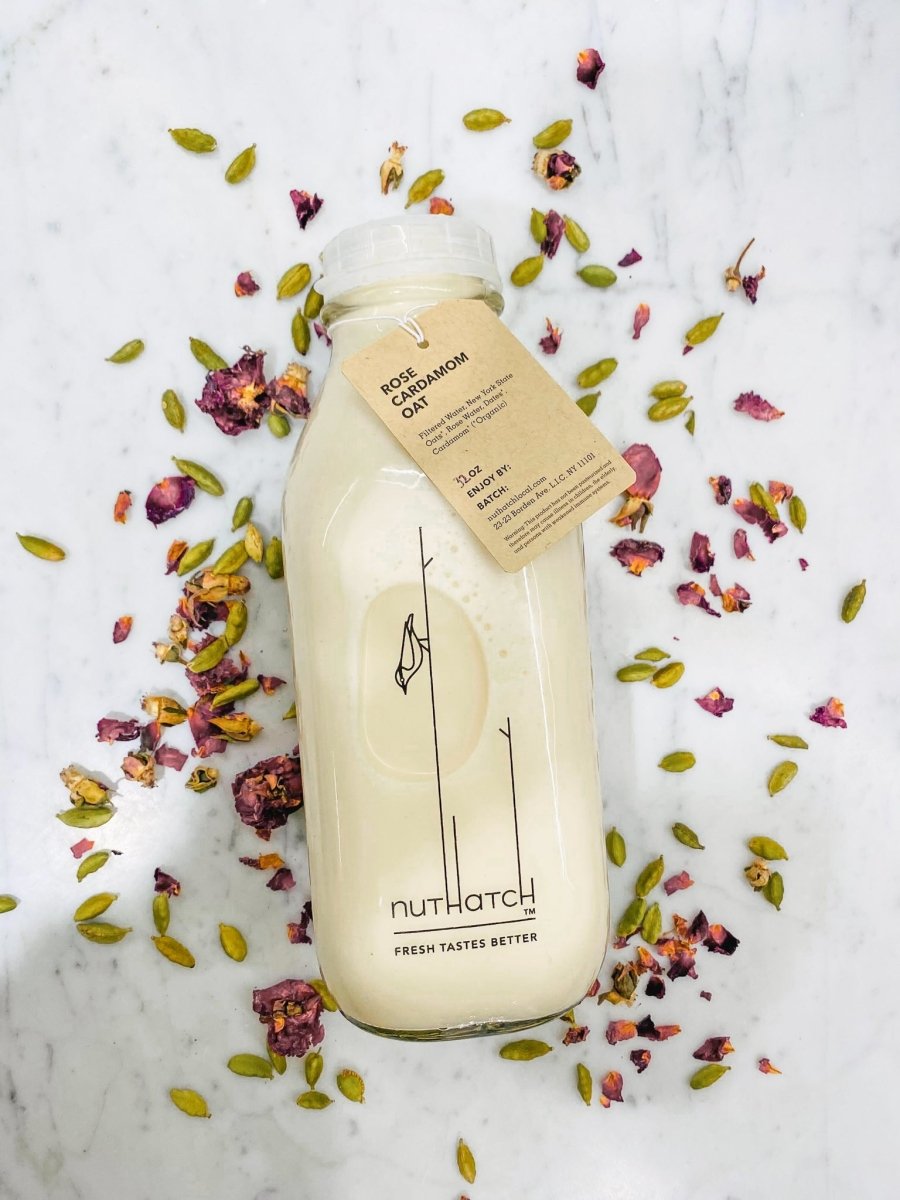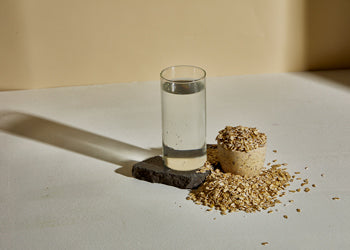
You might already know that in addition to making fresh plant-based milk, we also make upcycled blanched almond flour! We know you have ‘lots of questions, so here are the answers to some of your burning almond flour questions.
How is blanched almond flour made?
- Our almond flour is made from the pulp of the almond after making almond milk, which makes all the difference. We dehydrate the remaining nut pulp so it can be milled and hand-sifted into flour. And because we use organic blanched almonds, the result is a beautiful, white-colored almond flour.
What are blanched almonds? Why do we use them?
- Blanched almonds are simply almonds with no skin! Other almond flours are usually made with the bitter skins - but ours aren’t. This results in an almond flour that is naturally sweetener and finer than regular almond flour.
Is blanched almond flour gluten free and/or vegan?
- Yes to both! There is no gluten in almond flour and it’s 100% vegan.
Is almond flour a replacement for regular flour?
- Sure is! Anything you would use regular flour for, you can use almond flour as a replacement at a 1:1 ratio. However, more binder (like eggs or oil) is typically needed when using substituting gluten free flours for traditional wheat flour.
What can I bake?
- ‘Lots of stuff. Here are some suggestions:
- Cookies
- Brownies
- Pancakes
- Waffles
- All kinds of breads - pumpkin, banana, zucchini, etc.
- Muffins
- Biscotti
- Cake
TIP: Because almonds are high in natural fat content, almond flour tends to make baked goodies moist and tender. So it’s great for cakes!
Non-baking uses?
- Almond flour even goes beyond baking. It can be used for breading for any meat, eggplant, zucchini, tofu, etc.
How long does it last?
- About 1 year.
TIP: If you store your almond flour in the freezer, you can prolong its shelf life up to a year after its best-by date.
How to store almond flour?
- The natural high fat and oil content in almonds can make almond flour go rancid quickly when exposed to heat and direct sunlight. To prevent your upcycled almond flour from going bad, keep it in a dark, cool pantry the way you would with regular flour. You can also keep it in the fridge or freezer to extend the shelf life.



